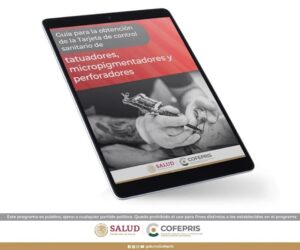Keeping the promise to the women who will deliver universal health coverage

Women have always played a vital leadership role in their communities as traditional healers, keepers of medicinal recipes, carers of the sick and birth attendants. In many traditional societies, they still do. But when medicine formalized, women had to fight their way and that partly explains why, although women are 70% of health and social care workers, they are clustered into lower status, low paid roles today.
This Universal Health Coverage (UHC) Day is the first since the landmark September 2019 United Nations High Level Meeting on UHC when Heads of State and Government made strong commitments to deliver UHC. And one of the most important promises made was to address the gender inequities in the health and social workforce that disadvantage women and limit their advance into leadership. Heads of State and Government agreed unanimously that this has to change. And it has to change for three critical reasons:
First, we have a moral duty to look after the people who look after us when we are at our most vulnerable. It is a reasonable social contract that, in return for what they do for us, female health workers should have decent working conditions where they can focus on their work without fear of violence and harassment. And it is their right to receive equal pay and indeed, to be paid for the work they do. Yet half the $3 trillion women in health contribute to global Gross Domestic Product is in the form of unpaid work. Health systems cannot be strong resting on the fragile and inequitable foundation of unpaid work by women and girls. Recognizing and paying women fairly for all the work they do in health and social care will result in stronger health systems for us all.
Second, 18 million new health and social care jobs, primarily in low- and middle-income countries, must be created to deliver UHC. And that is in the context of a wider predicted demand of 40 million health workers by 2030. With demographic changes and rising life expectancy, the health sector is one of the fastest growing economic sectors globally and supply is not keeping pace with demand. It would be a tragedy to have got commitment to UHC at the highest political level and to fail to realize it because we do not have health workers to deliver care. Women are studying medicine and entering health occupations in greater numbers than ever before in most countries and that trend seems set to continue. We must remove any barriers to entry and advancement, to encourage them to enter health occupations and to stay. Women will fill the majority of health worker jobs and deliver UHC, if we enable them to do so.
Finally, Delivered by Women, Led by Men reality must change to achieve UHC. With men holding 75% of senior roles in global health, health systems are not drawing from the total talent pool. Our health outcomes are poorer because we are losing the perspectives of the women who run health systems, from both design and delivery. If UHC is to keep the promise of reaching everyone, we need diverse perspectives and diverse leadership to reflect the populations we serve. We need women to lead health systems and have an equal voice in shaping them.
The September 2019 High Level Meeting on UHC was an important step in a decades long process to reach UHC with a Sustainable Development Goal delivery date of 2030. We have not come out of this meeting to rest on our laurels. Far from it. We see that Declaration as the high-level roadmap we needed to signpost the rest of the pretty tough road to UHC.
And as part of that journey, WHO has designated 2020 as the Year of the Nurse and the Midwife in order to recognize the vital contribution of the largest single health worker occupation, an occupation comprised of 80% women. The Year of the Nurse and Midwife will go beyond celebrating the work of nurses and midwives, which deserves to be celebrated and valued. It will look at women’s leadership within nursing and midwifery and the leadership role that should be played by nurses and midwives from community to global levels.
I am determined that we will keep the promise made in the UHC Political Declaration to address gender inequities experienced by female health workers. We will do that because it is the right thing to do for female health workers but also because it is the smart thing to do for health systems and UHC.
















